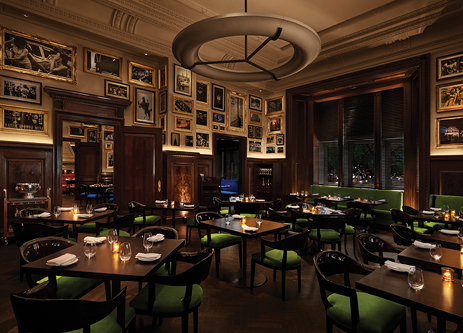- Home
- Media Kit
- Current Issue
- Past Issues
- Ad Specs-Submission
- Ad Print Settings
- Reprints (PDF)
- Photo Specifications (PDF)
- Contact Us

![]()
ONLINE

Modern Luxury
Editors’ Note
Bastian Germer has served in his current role since October 2017. Previously, he was Hotel Manager of The Ritz-Carlton, Toronto for three years. Germer has held numerous positions at distinguished hotels across the globe since entering the industry in 1995. He is a graduate of the Hotel Academy in Hamburg, Germany and has completed the General Managers Program at Cornell Nanyang Institute of Hospitality Management, as well as the Ascent Leadership Program at UNC Kenan-Flagler Business School.
Property Brief
The New York EDITION (editionhotels.com/new-york) blends the elegant design of Ian Schrager with its Madison Avenue landmark beginnings. Originally constructed in 1909 as Metropolitan Life Insurance Company’s headquarters, this clocktower on the edge of Madison Square Park has been reinvented to offer luxurious boutique accommodations, a tranquil hotel spa, sophisticated event spaces, and a Michelin-starred restaurant helmed by Chef Jason Atherton, all encompassed by 360-degree views of the City.

The New York EDITION
How do you define the EDITION brand and how is The New York EDITION positioned in the market?
The EDITION brand and our hotel, specifically, are pioneers as far as the introduction of modern luxury is concerned. Both the EDITION brand and our hotel’s location here in New York City are growing in recognition and exposure.
The Flatiron District is not a traditional luxury destination, but both domestic and international travelers are becoming increasingly aware of the location because of the brand’s global appeal.
New York City is a market that is challenging for hotels in regard to food and beverage business. What was your approach to food and beverage and what are the keys to being successful in this area?
I think in the hotel business this is a very challenging area and we’ve seen, unfortunately, many luxury hotels closing restaurants or foregoing restaurants altogether in recent years. At EDITION, one thing we do extremely well is connect with the local community through food and beverage. This is something that we’ve done in every single location where we operate a hotel. Specifically, here in New York City, we have our restaurant, The Clocktower, and our cocktail bar, The Bar at The Clocktower, which are both located on the hotel’s second floor. We also have our Lobby Bar, which serves cocktails and light bites.
We’ve partnered with Stephen Starr and his team in Philadelphia in the restaurant space. He is a remarkable restauranteur and has been an ideal partner in executing our vision for a sought-after, elevated dining experience in Manhattan that far surpasses the typical expectations for a hotel restaurant. Of course, we care about creating an enjoyable and convenient dining experience for our hotel guests, but it is equally as important to engage the local community’s interests and tastes in order for the restaurant to sustain.
How critical was it to build the right team at the property and to attract top talent?
This was our number one priority. Without being able to recruit and retain the right team, all other priorities would have been very difficult to achieve. We have adopted some of the best practices in the market as far as recruiting is concerned and we have put several initiatives in place to ensure that we consistently assess, evaluate and retain the best talent.

The Jade Room at The Clocktower restaurant
How has the role of the general manger evolved?
In the past, many would have thought of the GM as more of a host in a hotel who could be found in the lobby interacting with guests. As the industry has evolved, the GM role has developed into one that looks at asset management, at technology, and at financial pressures, so today, many consider it to be more of a financial role than a hospitality role.
For someone like you who puts hospitality at the forefront, how important is it that with all the financial pressures around the business, that the hospitality part does not get lost for a general manager?
While I think that the general manager’s role has certainly evolved, especially considering how important the financial pressures of the business have become, a general manager in our organization and within our brand needs to be present and needs to be visible.
Our general managers are expected to interact with both staff and guests on a daily basis. Our guests expect personal interactions with the general manager, and not just through correspondence, but face to face as well. I carve out a significant amount of my day for that because personal connection is at the heart of hospitality.

Loft suite
What advice do you offer to those coming out of hotel school and beginning their careers in the industry?
My advice would be to spend as much time as possible with the people that carry out the majority of the day-to-day work in the hotel, and to make the opportunity to step into their shoes and experience what it is like to be a housekeeper, a room service server, or a laundry attendant.
I know that may not sound like the most enticing proposition for somebody who is a fresh graduate, but down the road as one becomes a manager, a department head, and eventually a general manager, this practice will instill an understanding of and appreciation for the work that these people do on a day-to-day basis. It will provide a genuine respect for everything that’s happening in the hotel which will help with the decision-making process. It will also build stronger relationships with the team which, ultimately, is what one must have if one wants to be a successful general manager.![]()